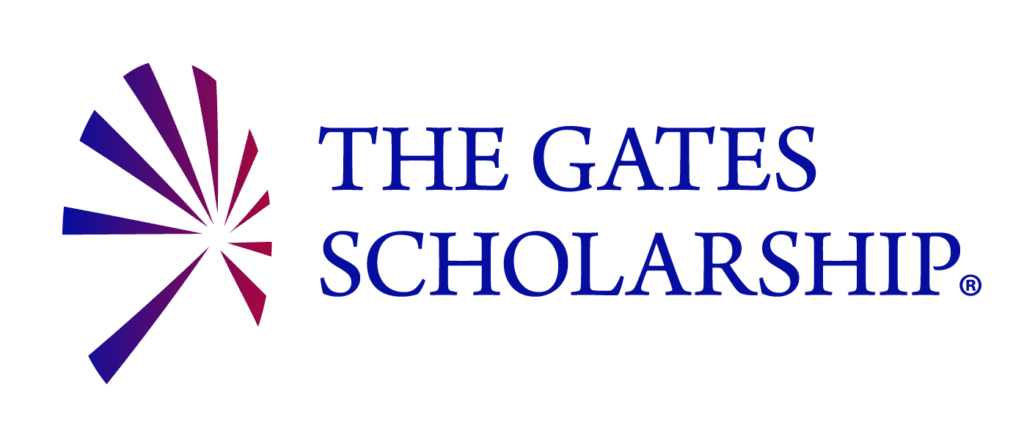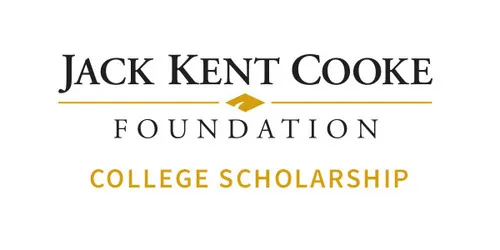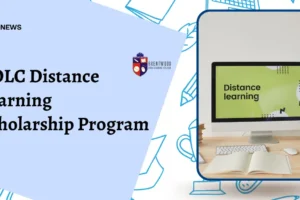Are you looking for assistance due to financial hardships impacting your college education? Hardship grants for college students are tailored to support individuals facing unexpected financial challenges such as job loss, medical emergencies, or family crises that could hinder their ability to afford tuition, housing, books, or other essential expenses related to their education.
Table of Contents
These Hardship Grants For College Students aim to provide crucial aid during challenging times, ensuring students can continue their academic journey without financial barriers. The application process for the funds is straightforward and can be completed entirely through online sources.
Funds granted under this program take the form of non-repayable grants. The allocation is decided through a ‘means test,’ evaluating the student’s income and expenses. It is crucial to understand that the discretion to disburse payments rests with the student finance center.
The fund is intended to serve as supplementary support, not a primary income source or a substitute for parental assistance. Instead, it acts as a safety net for students genuinely facing financial need.
Usually, Universities and educational institutions oversee the administration of the Student Hardship Fund (SHF) to aid students who are facing financial challenges and struggling with living costs. The granted amount is determined by the respective university or college and may be disbursed as a lump sum or in installments.
Key Takeaways
- Student Hardship Fund (SHF) is money a college/university gives to students facing financial difficulties.
- It helps with living expenses like rent and food.
- You can get SHF money if you have kids, financial obligations, or a disability.
- The money is not yours to keep, it’s a gift to help you out.
- There are other organizations that offer financial aid to college students besides the college itself.
- These organizations might have different requirements to qualify for their money.
- There are also government programs to help students in need, like food stamps and emergency housing assistance.
- Before applying for any financial aid, make sure you meet all the requirements.
List of the 7 Best Hardship Grants for College Students
Other than universities and educational institutions there are some organizations and programs that release Hardship Grants For College Students. We have researched and shortlisted some of these Best Hardship Grants For College Students for you. These are mentioned below, let’s have a look:
1. Horatio Alger National Scholarship
The Horatio Alger National Scholarship, offering a substantial $25,000 award, presents an opportunity for high school juniors committed to pursuing a bachelor’s degree. The application deadline for the scholarship is March 15, 2023, with the next year’s application period opening on December 1, 2023.
To be eligible, applicants must demonstrate a critical financial need, with an adjusted gross family income of $55,000 or lower. Active involvement in co-curricular and community service activities is also a prerequisite, along with showcasing integrity and perseverance in overcoming adversity. A minimum GPA of 2.0 and U.S. citizenship are further eligibility requirements.
The application process mandates an endorsement from someone over 21 years old who is acquainted with the challenges the applicant has faced. Additionally, proof of citizenship and the submission of financial information are required components.
Aspiring candidates are encouraged to align their aspirations for higher education with the criteria outlined by the scholarship, making sure to meet the specified eligibility requirements and adhere to the application deadline.
2. Gates Scholarship

The Gates Scholarship presents a unique opportunity as it covers 100% of expenses not covered by financial aid and family contributions. The scholarship, with no specified deadline, is open to high school seniors who meet specific eligibility criteria.
Candidates must belong to one or more of the following ethnic groups: African American, Asian & Pacific Islander American, Hispanic American, and/or American Indian/Alaska Native (with proof of tribal enrollment required). Additionally, applicants need to be U.S. citizens or permanent residents, Pell Grant eligible, maintain a minimum GPA of 3.3, and plan to enroll full-time in a four-year degree program.
To apply for this prestigious scholarship, candidates must meet certain requirements. They should rank in the top 10% of their graduating class, showcasing academic excellence. Furthermore, applicants are expected to demonstrate leadership skills through active participation in extracurricular activities, especially those related to community service and volunteering.
The Gates Scholarship values characteristics such as emotional maturity, motivation, and perseverance, emphasizing a holistic approach to recognizing deserving candidates.
The applicants applicants are encouraged to thoroughly review and align themselves with the eligibility criteria while ensuring they fulfill the specified application requirements. The Gates Scholarship places significant emphasis on academic achievement, community involvement, and leadership qualities, making it a valuable opportunity for those who meet the criteria. Gates scholarship is one of the best Hardship Grants For College Students.
3. Hagan Scholarship
The Hagan Scholarship, valued at $60,000, offers a holistic opportunity for eligible individuals. Open to U.S. citizens with plans to enroll in an approved four-year college or university, applicants are expected to fulfill a work commitment of 240 hours annually, with a gross household income threshold set at less than $85,000.
This scholarship is distinctive in its approach, considering both merit and financial need. Its primary goal is to empower recipients to pursue a four-year college education and graduate without the burden of debt.
Beyond the financial support, the Hagan Scholarship program includes valuable components such as workshops, investment account management services, and the opportunity for free study abroad. These extra offerings aim to equip recipients with essential life skills that often extend beyond the typical college curriculum.
The needy candidates are encouraged to confirm their eligibility and meet the application requirements, recognizing the Hagan Scholarship as a comprehensive opportunity that goes beyond financial assistance, intending to enhance the overall educational experience.
4. Ron Brown Scholarship

The Ron Brown Scholarship, valued at $40,000, represents a significant opportunity for high school seniors who meet specific eligibility criteria. Geared towards supporting individuals of Black/African American heritage, the scholarship places importance on outstanding academic performance, strong leadership qualities, active involvement in community service, and a demonstration of financial need. In addition to these criteria, applicants must be U.S. citizens or permanent residents.
To apply for this distinguished scholarship, candidates need to submit a transcript, two letters of recommendation, and two 500-word essays. The scholarship aims to identify and assist well-rounded individuals who not only excel academically but also exhibit robust leadership skills and a dedication to community service.
The emphasis on financial need underscores the scholarship’s commitment to creating opportunities for those who may require additional support to pursue their education.
The candidates are advised to thoroughly review and fulfill the outlined eligibility criteria while diligently preparing the necessary application materials. The Ron Brown Scholarship stands as a testament to a commitment to diversity and excellence, offering both financial assistance and recognition to deserving high school seniors who embody the values it aims to promote.
5. Davis-Putter Scholarship
The Davis-Putter Scholarship offers financial assistance of up to $15,000 and has a submission deadline set for April 1, 2023. Eligible candidates for this scholarship must be enrolled in a college or university or participating in a trade or technical program.
A key criterion for selection is active involvement as an emerging organizer in progressive movements that champion liberation, self-determination, and social and economic justice within their communities. Demonstrating financial need is another essential requirement, and the scholarship shows a strong preference for candidates who plan to continue contributing to these causes within the U.S. post-completion of their degrees.
Applicants for the Davis-Putter Scholarship must prepare a 1,000-word personal statement or a maximum four-minute video or audio statement. Additionally, the application necessitates the submission of a transcript, two letters of recommendation, and the Student Aid Report (SAR) and/or Free Application for Federal Student Aid (FAFSA).
The scholarship emphasizes supporting individuals actively engaged in progressive movements, thereby fostering a commitment to social justice and economic equality. It stands as a valuable opportunity for those dedicated to making a positive impact in their communities.
6. Jack Kent Cooke College Scholarship Program

The Jack Kent Cooke College Scholarship Program offers a significant financial opportunity, providing up to $55,000 annually. The application deadline for this program is in November of every academic year.
To qualify for this scholarship, applicants should be high school seniors enrolled in a four-year college. A crucial eligibility criterion is the demonstration of financial need, with particular consideration given to candidates whose family annual gross income is up to $95,000. This scholarship program is designed to support high-achieving students facing financial barriers as they embark on their journey toward higher education.
The application process for the Jack Kent Cooke College Scholarship Program is time-sensitive, with the deadline set for November 17, 2022. Eligible candidates are encouraged to seize this opportunity to alleviate the financial burden of their college education and pursue their academic goals with the support of this generous scholarship.
7. HEERF Emergency Grants
During the pandemic, many students faced huge challenges. Some students also had money troubles because of COVID-19. If the pandemic messed up your schooling, you might be able to get a Higher Education Emergency Relief Fund (HEERF) grant. This program started in March 2020 under the CARES Act and is still going with the American Rescue Plan of 2021.
A HEERF grant is a special grant for students whose lives were turned upside down by the pandemic. In July 2022, the Biden-Harris Administration gave out the last $198 million.
The Department of Education sent the emergency grant money for HEERF directly to 244 schools that are part of the program. These schools have to give a certain percentage as emergency grants to college students.
The schools need to find students who need help, especially those who are having money troubles. Students who got a Pell Grant probably meet this requirement.
Online students, DACA recipients, asylum seekers, and other eligible groups can get HEERF emergency grants too.
Students can use the grant money for any expenses from the pandemic. This includes costs for school, housing, food, healthcare, or child care.
Types Of Hardship Grants For College Students
Various options for emergency financial aid are available for college students, each with unique application requirements and processing timelines. When seeking emergency assistance, consider the following avenues:
1. Emergency Grants:
In response to the challenges posed by the COVID-19 crisis, the Higher Education Emergency Relief Fund (HEERF) was initiated under the Coronavirus Aid, Relief, and Economic Security (CARES) Act. This fund allocates $14 billion in aid to eligible colleges and universities.
Additional emergency aid, amounting to $21.2 billion (HEERF II in January 2021) and $39.6 billion (HEERF III in March 2021), has also been made accessible.
2. Emergency Student Loans:
Some educational institutions provide emergency loans for students facing urgent financial needs. Unlike grants, these loans necessitate repayment in the future. It is essential to comprehend the loan terms and be confident in your ability to repay the debt.
3. Food Programs:
The Supplemental Nutrition Assistance Program (SNAP) is a federal initiative that issues electronic benefits for purchasing food. Eligibility criteria have expanded during the pandemic, allowing students to qualify based on participation in a work-study program or having a $0 expected family contribution.
4. Housing Assistance:
A significant number of college students experience housing insecurity. Check with your school’s housing office or student affairs department for on-campus housing assistance or residency programs. If such assistance is not available, explore alternative resources, such as local nonprofits or shelters. The processing time varies depending on the specific type of assistance.
The applicants Initiate the application process by reaching out to your school’s housing office to inquire about on-campus assistance programs. If your institution cannot assist, explore available options with local nonprofits.
There are many more types of hardship grants for college students, however, you may need to understand your situation and then apply accordingly. But before applying make sure to check whether you meet all the eligibility criteria and requirements for the grants.
Why You Might Urgently Need More Money as a Student?
Most kids know about asking for school money to pay the bills and stuff they need. But some costs are not covered by these funds and loans.
Funds for hard times can help pay for:
- Health care costs
- Losing a job
- Higher rent
- Money troubles from COVID-19
- New laptop or phone
- Car fixes
- Losing sports funds due to injury
- No more child care
Some costs often happen, while others affect few students. But the common point is that they all come unexpectedly and make money tight.
FAQs
1. What assistance did college students receive from the CARES Act?
Enacted in response to the COVID-19 pandemic in March 2020, the CARES Act provided relief for college students through measures such as automatic administrative loan forbearance and the suspension of interest on federal student loans. Additionally, eligible students had access to emergency grants via the Higher Education Emergency Relief Fund (HEERF).
2. What actions should you consider if your application is declined?
If your hardship fund application is rejected, some universities provide the option to appeal the decision. In cases where both your initial application and appeal are unsuccessful, it is recommended to explore alternative avenues for financial assistance.
3. Is there a likelihood of another legislative initiative akin to the CARES Act specifically targeting college students?
As of July 2023, the Department of Education has confirmed the disbursement of the final HEERF funds, totaling $198 million across 244 colleges. These funds are intended to aid students in their recovery from the impacts of the pandemic.
4. Are grants still available for students affected by the ongoing effects of Covid-19?
The federal government introduced the Higher Education Emergency Relief Fund (HEERF) as part of the CARES Act in March 2020, and this initiative persists under the American Rescue Plan. The program continues to provide emergency grants to support students facing challenges due to the ongoing effects of the pandemic.
5. What’s the typical processing time for student hardship fund payments?
The processing time for Student Hardship Fund (SHF) payments is approximately 20 working days. However, it’s essential to acknowledge that this duration can vary based on the university responsible for administering the funds.
6. What is the Federal student Emergency Relief Fund?
The national government made a fund to assist college students. This fund helps students who faced money struggles due to the COVID-19 sickness. The fund is called the Higher Education Emergency Relief Fund Act.
7. What is the emergency grant for students in California?
The California Emergency Grant helps students with money problems. It is a one-time payment from the state. The grant is only for students who do not have a lot of money. The money is meant to help students dealing with an emergency or personal crisis.
8. What is the SFRF emergency grant?
Many students face challenges that make it hard for them to stay in school. Then the SFRF grant helps with students dealing with those big problems. It helps with things like losing your job or making less money. It also helps with medical costs and paying for childcare. Having a financial crunch can make school too difficult. But this grant gives students the support they need to keep going with their studies.
Conclusion
The Student Hardship Fund (SHF) is intended to support students dealing with authentic and unavoidable financial difficulties, especially those experiencing challenges with living expenses, and is commonly offered by the university.
Eligible recipients of the Student Hardship Fund include students with children, existing financial obligations, individuals from low-income households, or those with a disability.
To start the application process for hardship grants for college students, you need to contact the student services department at your university or apply online. They will consider your eligibility using criteria such as your Student Financing letter and other financial documents. This may include bank statements, rent data, and many more.












Add Comment